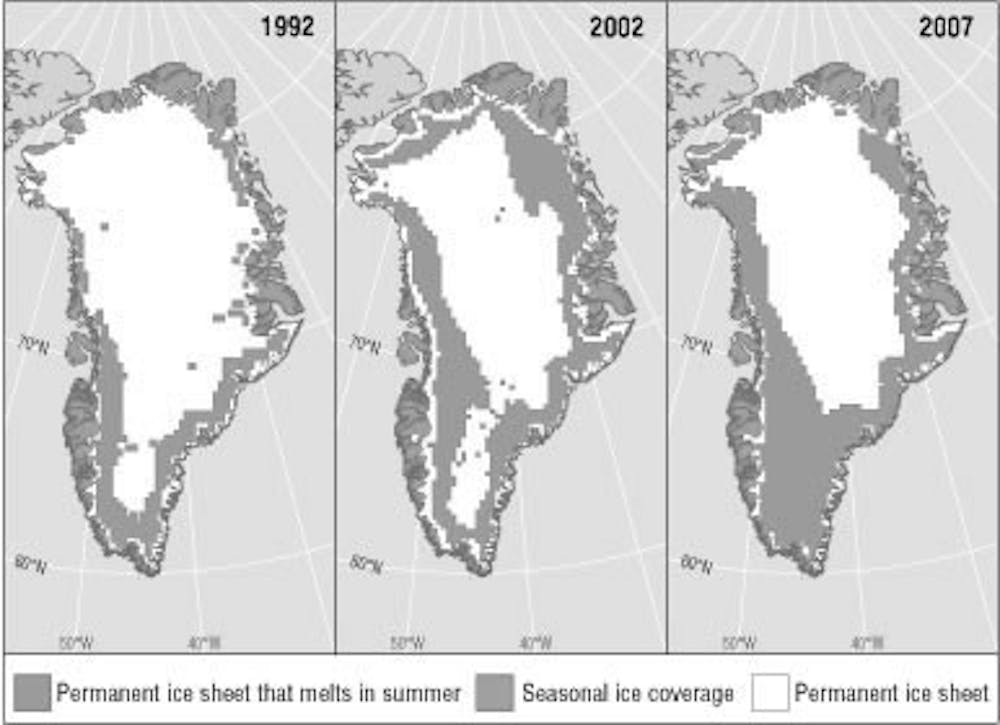On Friday Feb. 16, Dr. Barney Ellison came to the college to give a talk on climate change and renewable energy. Ellison received his Ph.D. in organic chemistry at Yale after studying biology at Trinity College in Connecticut. He is now a professor of organic chemistry at the University of Colorado at Boulder where he also runs an organic chemistry research laboratory. His recent interests are in climate science and the effects of aerosols.
Ellison began the lecture by introducing the practice of chemical testing done to air particles to reveal what dangerous chemicals are present in the air, such as carbon dioxide and greenhouse gases. He then discussed the quantities and extent of damage done by such harmful gases and chemicals, showing the audience infrared spectroscopy graphs, which are used to analyze chemical compounds in the air.
Additionally, Ellison discussed the environmental effects of climate change, notably found in the melting of ice in Greenland. All of his findings about these effects were supported by his calculations of the quantities of chemicals in the air.
Ellison reminded the audience that within this century, the world could run out of fossil fuels for energy use and that it is up to students to find alternative energy sources to fix this problem. He proposed that solar and nuclear power would be the best sources of energy in the coming years, noting that France gets the majority of its energy from nuclear sources. However, he emphasized that a safer source of nuclear energy is needed before it can become more widespread.
Ellison also brought up the possibility of chemically removing greenhouse gases from the atmosphere, though he questioned the ability of this method to combat such an extensive problem.
With such a large Environmental Science program at Middlebury, Ellison’s call to action hopefully resonated with many of the members of the science community. Ellison ended with a call to the scientific community to emphatically dedicate its resources and focus in on climate change research.
Climate Change Guest Lecture

Comments



